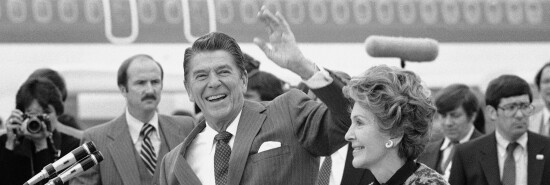
In politics, nice guys actually often finish first
Quin Hillyer
Video Embed
Of all the memes prevalent on the political Right, perhaps the most inane is the assertion that Republicans often lose because they are “too nice.” The only way to win, supposedly, is to offer the meanest candidate imaginable.
Hogwash.
BIDEN’S WEAPONIZED DOJ ATTACKS SPACEX FOR HIRING AMERICANS
Generations of opinion polls and actual election results show that majorities or pluralities of voters in general elections reward empathy, and a clear majority have said that showing respect to others is “very important” to their votes. The only, repeat, only indication to the contrary in presidential politics came when Donald Trump barely eked out an Electoral College win in 2016, despite losing the popular vote. And that victory came with a caveat: His opponent, Hillary Clinton, was seen as at least as mean as he was, and Trump actually beat Clinton in all the surveys about who voters “would rather have a beer with.”
The classic example of voters choosing “nice” over “tough” came in 2008 when Clinton led the Democratic field quite handily in terms of how Democratic voters rated her experience, electability, and competence, but Barack Obama easily outpaced her on “likability.” Obama, of course, won.
For the past 50 years of American presidential politics, that same pattern has prevailed. Jimmy Carter in 1976 was the supposedly “nice guy” breath of fresh air, and he won. Four years later, despite voters hating his record, he still led the polls against Ronald Reagan — perceived as the “tougher” of the two, but also therefore in some ways scarier — until in their sole debate, a week before Election Day, Reagan’s geniality outclassed Carter’s on the same stage. Reagan won in a landslide.
In 1988, George H.W. Bush had an image of East Coast gentility, but he won handily. In 1992 and 1996, Bill Clinton easily outpaced first Bush and then Bob Dole on the “empathy” factor, with voters across the country genuinely believing Clinton could “feel their pain.” George W. Bush in 2000 and 2004 had a little bit of an edge to him, but almost nobody thought Al Gore or John Kerry were in the same ballpark in terms of approachability and warmth.
John McCain in 2008 had built up decades of reputation as being ornery in a half-fun, regular-guy kind of way — but still ornery. (In truth, McCain’s orneriness sometimes was off the charts.) Obama topped him on the “drink a beer with” test, and at the ballot box.
Only in 2012 did a Republican presidential candidate, Mitt Romney, lose while trying to out-nice the opponent (Obama), and even then he lost handily in the surveys on likability. Still, Romney came close to winning, actually leading Gallup’s final pre-election poll 49-48 and eventually earning more of the popular vote against the generally popular Obama than Trump later did against unusually weak opponents (Clinton and Joe Biden).
At all levels of American politics, it is a not uncommon occurrence for two front-runners to spend so much time savaging each other that a third candidate, a comparative long shot, surges to victory by staying above the fray as an apparently more respectful and likable option.
CLICK HERE TO READ MORE FROM THE WASHINGTON EXAMINER
Sure, politics isn’t for the faint of heart, and a high degree of personal toughness is necessary to win any race. Toughness, though, is not necessarily synonymous with discourtesy, much less with meanness or verbal brutality. Reagan didn’t defeat Carter by yelling that Carter was a liar; he won by chuckling wryly and saying “there you go again.” George W. Bush didn’t flash anger when Al Gore invaded his personal space; he flashed a humorously quizzical look as if to say, “What is this weirdo doing?”
Over time, voters often reward personal decency. In the age of Trump, personal decency may seem so refreshingly unusual that it suddenly produces an unexpected winner.
